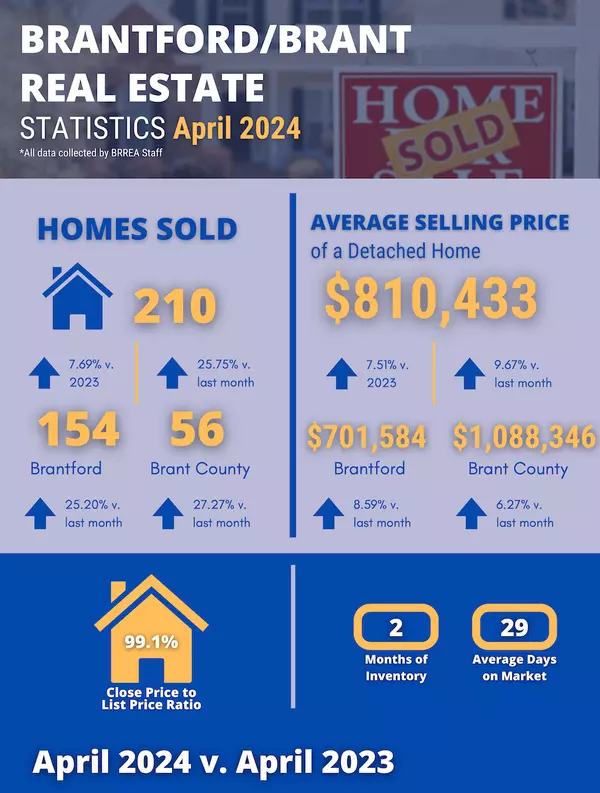
Lawyers for real estate serving Brantford Ontario
Buying or selling a home is an exciting and significant milestone in life, but it also involves a complex legal process. To ensure a smooth and successful real estate transaction, one of the key players you'll need on your team is a reliable real estate lawyer. In this blog post, we'll guide you through the essential steps to help you choose the right real estate lawyer for your home buying or selling journey. Start Early: Don't wait until the last minute to find a real estate lawyer. Begin your search early in the home-buying process, preferably as soon as you start looking for a property. This allows you to make a well-informed decision without feeling rushed. Seek Recommendations: Tap into your network for recommendations. Friends, family, and colleagues who have recently bought or sold a home can provide valuable insights into their experiences with real estate lawyers. Online reviews and testimonials can also be helpful in identifying reputable professionals. Our recommended real estate lawyers in Brantford ON include: Name: Tanya StephensPhone: 519-753-8417Website: https://www.boddy-ryerson.com/Address: Boddy Ryerson LLP 172 Dalhousie St. Suite 101 Brantford, ON N3T 2J7 Name: Robert Lefebvre Phone: 519.756.3350 ext.278Website: https://www.lefebvrelawyers.ca/Address: Lefebvre & Lefebvre LLP 75 Chatham Street Brantford ON N3T 5N9 Name: Allan LovettPhone: 519.759.6220 ext. 336Website: https://waterousholden.com/Address: Waterous Holden 50 King Street Brantford, ON N3T 5V6 Check Qualifications: Ensure that the lawyer you're considering is a licensed and experienced real estate professional in ON. Look for credentials, such as membership in relevant legal associations and a focus on real estate law. Verify their track record by checking for any disciplinary actions or complaints against them. Local Expertise: Choose a real estate lawyer who is familiar with the local real estate market and regulations in ON. Local knowledge is crucial in navigating the specific legal intricacies that may vary across different regions within the province. Transparent Fees: Discuss the lawyer's fee structure upfront to avoid any surprises later on. While it's essential to find a lawyer within your budget, remember that expertise and reliability often come with a cost. A transparent breakdown of fees will help you understand the investment required for legal services. Communication is Key: Effective communication is critical in any legal transaction. Choose a real estate lawyer who is responsive, easily accessible, and takes the time to explain legal jargon in a way you can understand. This ensures that you are kept informed throughout the process. Client References: Ask the lawyer for references from previous clients. Speaking with individuals who have worked with the lawyer can provide valuable insights into their professionalism, efficiency, and overall satisfaction with the legal services provided. Online Presence: A strong online presence, including a professional website and positive reviews on reputable platforms, can be indicative of a real estate lawyer's commitment to their practice. Take the time to explore their online presence to gain a better understanding of their reputation. Choosing the right real estate lawyer in ON is a crucial step in ensuring a smooth and successful home-buying experience. By starting early, seeking recommendations, checking qualifications, prioritizing local expertise, understanding fees, emphasizing communication, seeking client references, and evaluating online presence, you can make an informed decision that aligns with your needs and goals. With the right legal guidance, you'll be better equipped to navigate the complexities of the real estate market and enjoy the excitement of your new home.

New Rules for Short-Term Rentals in BC
May 1 2024 From the province: The new rules for short-term rentals are now live: The Principal Residence Requirement, meaning short-term rentals can only be offered in the principal residence of a host, plus one additional unit, secondary suite or laneway home/garden suite on the property in communities where populations are greater than 10,000 people. The Principal Residence Requirement will function as a provincewide floor for communities with populations of more than 10,000 people, but local governments will still be able to use existing bylaws and introduce additional bylaws that are more restrictive. The Principal Residence Requirement will come into effect in more than 60 communities throughout B.C. Strata hotels and motels that have been operating in a manner similar to a hotel or motel before Dec. 8, 2023, and that meet select criteria moving forward, will be exempt from the Principal Residence Requirement. Non-conforming use of property will no longer apply to short-term rentals. Under previous legal non-conforming use protections, if an existing use of land or a building did not conform to the new bylaw, it would have generally continued with legal non-conforming use. Short-term rental hosts will be required to display a valid business licence number on their listing, where a business licence is required by a local government. Short-term rental platforms will be required to share data with the Province. Local governments can request that a platform remove listings that do not display a valid business licence. Full requirements for hosts and platforms to comply with the new rules have also been released and are available in Backgrounder 1 and here: https://www2.gov.bc.ca/gov/content/housing-tenancy/short-term-rentals READ the full release here. New rules for short-term rentals Legislation has been enacted to give local governments stronger enforcement tools for their short-term rental bylaws, return short-term rentals to the the long-term rental market, and establish a new Provincial role in regulating short-term rentals. Services and information topics B.C.'s short-term rental legislation Like many jurisdictions, B.C. is regulating short-term rentals to help return more short-term rental units into homes for people. Learn more about B.C.'s Short-Term Rental Accommodations Act and regulations on this page. Provincial principal residence requirement B.C. has introduced new rules that restrict short-term rentals to principal residences in many B.C. communities, starting May 1, 2024. Information for short-term rental hosts, platforms, and guests As of May 1, 2024, there are new requirements for short-term rental hosts and short-term rental platforms operating in B.C. Find more information for key groups on this page. Definitions for BC's short-term rental legislation Find definitions and key concepts related to B.C.'s Short-Term Rental Accommodations Act and regulations on this page. Subscribing for short-term rental updates Subscribe for emailed updates to B.C.'s Short-Term Rental Accommodations Act, regulations and related information by entering your email address in the Subscribe text box on this page. Further regulations are expected in the coming year. SOURCE: https://www2.gov.bc.ca/gov/content/housing-tenancy/short-term-rentals

Property Transfer Tax exemptions - April 1, 2024
New 2024 budget measures from the government of BC: For many, buying a home is the largest purchase they will ever make, and property prices are making it harder. Every little bit helps, and Budget 2024 aims to give people the financial boost they need to bring buying a home within reach, including: Increases to the threshold for the First Time Homebuyers’ Program so it reflects today’s market: Qualifying first-time buyers can benefit when they purchase a home worth up to $835,000, with the first $500,000 completely exempt from the property transfer tax. That could mean as much as $8,000 in savings. An estimated 14,500 people – twice as many as before – will now be eligible for support to buy their first home, helping them move out of the rental market and freeing up rentals for others. People buying newly built homes worth up to $1.1 million will also see lower costs through the newly-built-home exemption. To help lower the cost and encourage the construction of more rental units, eligible purpose-built rental buildings of four or more units will also receive a property transfer tax exemption until 2030. Raising these property transfer tax exemption thresholds and incentivizing building of new rentals and homes will save more people more money, an estimated $100 million per year. For information on PTT including a calculator, click here. Property Transfer Tax Exemptions In principle, BCREA supports reduced property transfer taxes for first-time home buyers and people purchasing newly constructed homes. However, while we're in favour of measures that increase first-time home buyers’ abilities to purchase properties, it's critically important that housing supply is increased so they aren’t caught in bidding wars to acquire those homes. More detail is needed on property transfer tax exemption for purpose-built rentals to understand its impact on housing attainability for British Columbians READ MORE on BC REAL ESTATE ASSOCIATION bulletin Real Estate Lawyer Dylan Taylor explains in these videos how this will work: https://www.instagram.com/reel/C5gOHo4LRNd/?igsh=MWs2eXlwcDR4cWMwOA== https://www.instagram.com/p/C5la6XZLoyZ/
Categories
- All Blogs (71)
- bc (50)
- BCREA (2)
- brantford (27)
- Buying a Home (15)
- condo (9)
- depreciation report (4)
- education (24)
- first time buyer (2)
- flipping (2)
- Flipping Tax (6)
- food (1)
- handyman (2)
- homes for sale (21)
- housing statistics (13)
- inspections (4)
- insurance (1)
- lawyer (6)
- leasehold (2)
- matrix (1)
- mortgage agent (25)
- mortgages (15)
- NAR (3)
- new construction (10)
- new developments (9)
- news (25)
- ontario (20)
- presale (9)
- Property Transfer Tax (4)
- real estate (60)
- realtor (44)
- referrals (2)
- renovations (8)
- rentals (1)
- Residential Property Flipping Rule (4)
- schools (2)
- strata (7)
- stratatips (4)
- taxes (3)
- testimonials (3)
- townhome (3)
- Transfer Tax Exemptions (5)
- vancouver island (29)
- victoria (46)
Recent Posts











